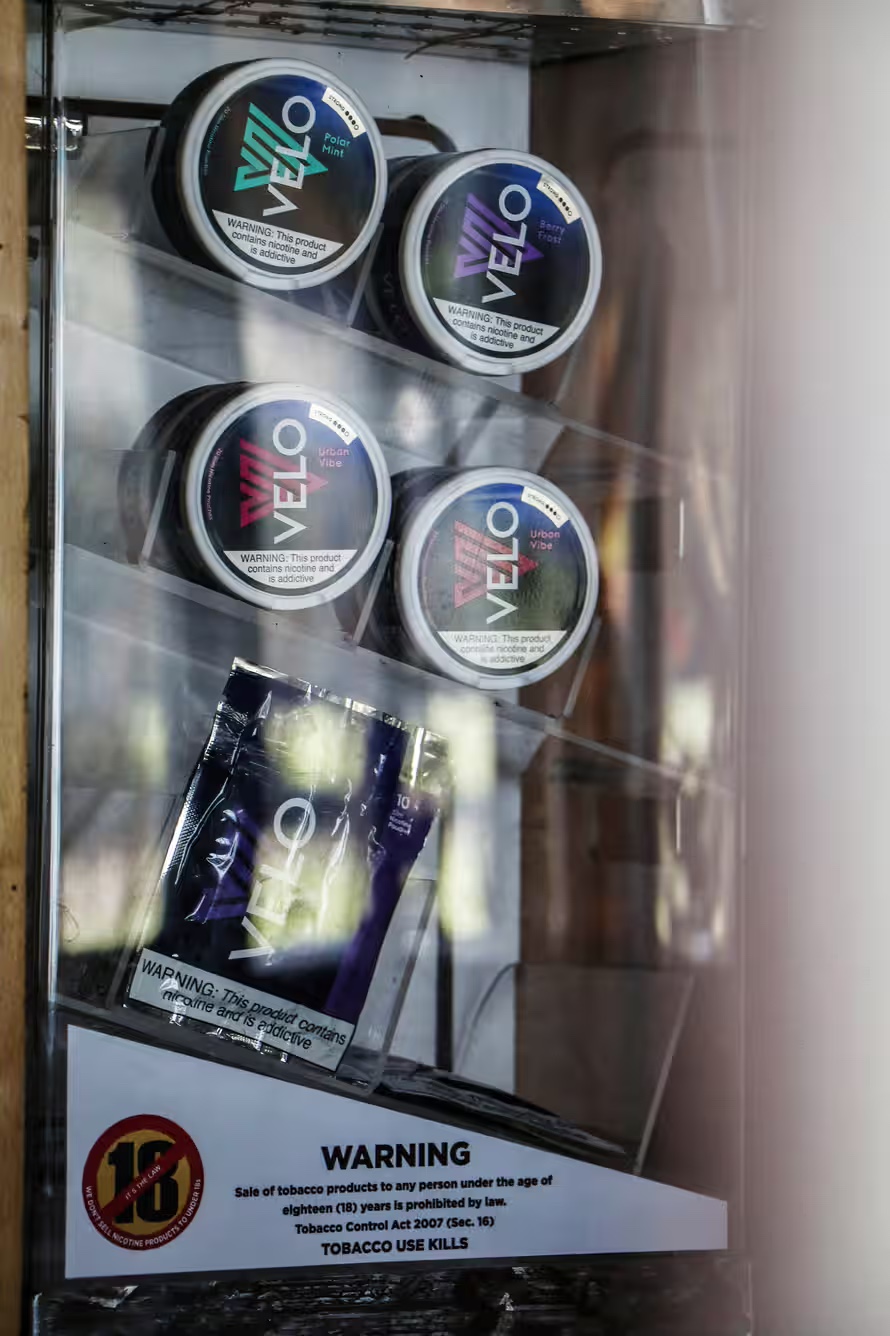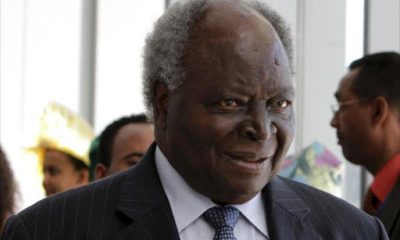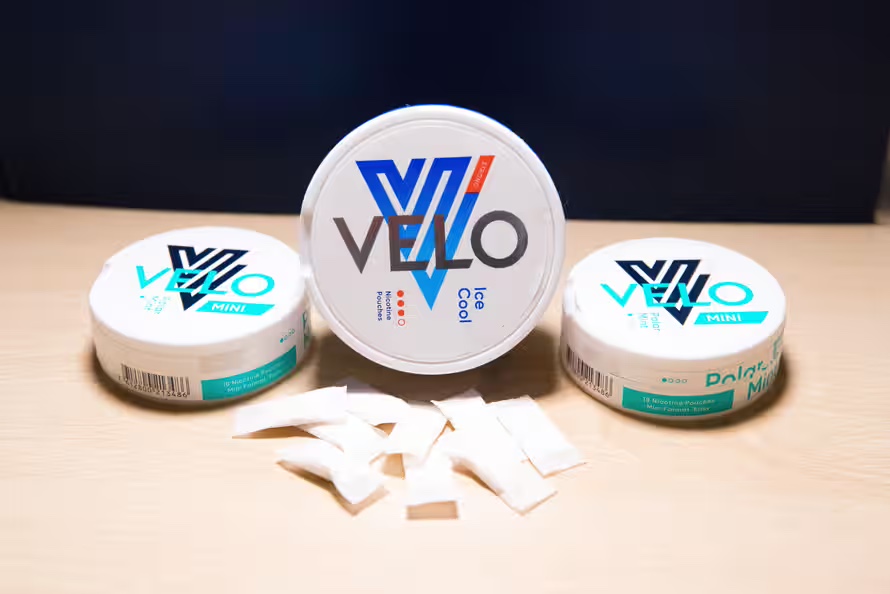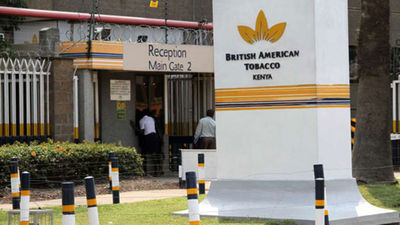An investigation by The Guardian has uncovered British American Tobacco (BAT) pressured Kenya to reduce health warnings on Lyft nicotine pouches, threatening investment withdrawal. BAT threatened it would pull investment from a Nairobi factory if its request for smaller labelling was not met.
Letters between British American Tobacco (BAT) and the Ministry of Health show the government yielded to the tobacco giant’s demand to sell Velo – one of the biggest-selling nicotine pouch brands globally – with significantly smaller health warnings and without mentioning potentially cancer-causing toxicants present in the products.
The letters are among documents shared with the Guardian and Africa Uncensored, and obtained by the investigative news outlet the Examination, which reveal the industry’s influence over policy in the east African country.
Existing tobacco regulations in Kenya stipulate that such labels must cover a third of the package and include information about the health hazards of the product. BAT lobbied to reduce the size of the warning, the letters show. The Ministry of Health agreed that Velo could be sold with a small warning saying: “This product contains nicotine and is addictive.”
In the UK, warning labels also inform consumers that nicotine pouches are “not risk-free” because they contain traces of tobacco-specific nitrosamines (TSNAs), cancer-causing compounds that are also present in cigarettes.
Velo pouches have gained global popularity, including among Kenya’s youth. TikTok videos of young Kenyans using Velo have amassed millions of views, and academic research shows the product being is sold in schools.
A draft report by a government taskforce, which was then leaked to the Examination, accuses tobacco companies of targeting young people. Fearing a new generation will become addicted to nicotine and that the pouches could be a gateway to smoking, the taskforce is calling for strict regulation of the products. Other politicians are demanding an outright ban.
The revelations about BAT’s role in shaping health warnings in Kenya come amid an industry-wide drive to sell more “smoke-free” – yet still addictive – nicotine products across the globe.
The global market for nicotine pouches, one of many “smoke-free” products, was $3bn (£2.36bn) in 2021. BAT views Kenya as one of its key “test markets” in low and middle-income countries, according to its financial presentations, and plans to make the country its base of operations for a rollout of the product across southern and eastern Africa.
However, it isn’t clear how nicotine pouches affect human health over the long term.
In September 2021, BAT’s managing director wrote to the Kenyan health ministry asking for permission for Lyft (as Velo was called when it first entered the market) to be sold with a warning covering just 10% of the pack. It said the “resumption of factory operations” hinged on this smaller warning being approved. “Your positive consideration of this request will allow us to operationalise our factory,” the letter said. The Ministry of Health agreed to allow warnings covering 15% of the front of the pack.
A successful lobbying campaign
BAT first launched its nicotine pouches into the Kenyan market in 2019.
The company obtained its licence to sell the products through Kenya’s Pharmacy and Poisons Board, a health ministry department that regulates drugs and medicines. Under that licence, the pouches, then sold under the brand name Lyft, were only to be sold in drug stores.
But BAT and its vendors sold the pouches online and in shops. They advertised the pouches through social media influencers and giveaways at universities. Their popularity soared with young people, including children.
A Kenyan DJ and a TV presenter were among the influencers hosted by BAT at the 2019 Formula One Grand Prix in Abu Dhabi, as part of the company’s sponsorship of the McLaren F1 team. BAT paid the social media team to post hashtags such as #GetLyfted, #LyftxMcLaren and #LyftKenya to followers.
In September 2020, the Kenyan health ministry wrote to the Pharmacy and Poisons Board challenging its decision to license Lyft, which it said was also being sold in vending machines, in violation of the law. BAT said it has never sold its products in vending machines.
The ministry asked for a comprehensive report on the circumstances that led to the Pharmacy and Poisons Board granting BAT a licence to sell its pouches in the first place. The Pharmacy and Poisons Board wrote to BAT Kenya in October 2020, saying Lyft should be sold only by pharmacies and must be withdrawn from retail stores and online marketplaces. It said the product must not be advertised.
In response, BAT temporarily suspended Lyft sales. It told investors it would “continue to engage with the local authorities”.
In January 2021, the health ministry wrote to BAT saying the pouches would now be subject to Kenya’s existing tobacco regulations, which require health warnings that cover about a third of the front of the packaging and half of the back. Before BAT suspended sales of Lyft they were being sold with significantly smaller warnings.
“This is when heavy lobbying now started, letters were written and many meetings held in Afya House [the headquarters for the Kenyan health ministry],” a government public health official told the Examination on condition of anonymity.
The key breakthrough came for BAT shortly after it wrote to the health ministry in September 2021 and threatened to pull investment from a new nicotine pouch factory it had pledged to build in Nairobi, which would serve east and south Africa.
In the letter, Crispin Achola, BAT Kenya’s managing director, told the cabinet health secretary Mutahi Kagwe that “our resumption of factory operations and the sale of Lyft in Kenya hinges on the provision of appropriate text health warnings”.
Achola drew Kagwe’s attention to a subclause in Kenya’s Tobacco Control Act of 2007 that allows the cabinet secretary discretion to alter the health warnings on products via a special directive.
Initially, BAT had pledged more than $15m to build a new factory for the nicotine pouches.

Velo, nicotine pouches.
Less than a month after BAT made its threat about the investment, Kagwe permitted BAT to cut the size of the health warnings on the nicotine pouch packaging in half and said the only health warning it had to include was the words: “This product contains nicotine and is addictive”, with no mention of the presence of the cancer-causing toxicants.
As a result, the products were given the green light to re-enter the Kenyan market in June 2022. This is when the pouches, rebranded to Velo, flooded back.
BAT was given special dispensation to sell nicotine pouches without standard-sized health warnings until July 2023. After that permission expired, the tobacco giant wrote to the health ministry in August asking for an indefinite exemption, “pending the development of specific regulations on this product and related categories”.
The health ministry has not yet responded to BAT. Velo is still on sale although there are shortages in shops. In October and November 2023, multiple shipments of nicotine pouches were impounded at Jomo Kenyatta International Airport. It is unclear why but in total, almost 20 tonnes of the product have been seized.
BAT Corruption Allegations
In a different scenario but similar hands, allegations of top level bribery, use of questionable dealings to market illness-causing tobacco-related illness, death and economic harm across Africa, the Cigarette maker has been accused of using financial inducements to undermine tobacco control efforts in Africa.
According to global tobacco industry watchdog, STOP, BAT gave cash (per diems, campaign donations) and cars to dozens of politicians, civil servants, journalists as well as people working at competitor companies to help influence and secure health policies that favour their business activities in key African countries.
Two new analyses of whistleblower documents and court records by the Tobacco Control Research Group at the University of Bath and published by STOP, suggest that BAT allegedly used payments to dozens of individuals and potentially unlawful surveillance to tighten its market grip on Africa.
The reports—one on the company’s activities in several East and Central African countries, another on its aggressive tactics in South Africa — reveal that BAT appeared to be operating “as if it were above the law,” according to the report on South Africa, to sell cigarettes — products known to cause tobacco-related illness, death and economic harm — across the region.
The whistleblower documents connected to BAT’s questionable dealings in East and Central Africa revealed evidence of payments made in Kenya, Tanzania, Uganda, Rwanda, Burundi, Sudan, Comoros, DR Congo, Malawi and Zambia. Researchers identified 236 payments made between 2008 and 2013 totalling $601,502 allegedly used to influence policy and sabotage competitors.
The researchers categorised payments into two: Those “raising questions under the United Kingdom Bribery Act (UKBA)” and another less serious but still suspicious group of payments “warranting further investigation under UKBA.”
The payments included more than $28,500 to sources within the Kenya Revenue Authority and more than $38,500 to a minister in Kenya, allegedly in exchange for intelligence and to the award of a tender to offer tracking services.
Corporate espionage
In Kenya, roughly $56,000 was paid to a private contractor, allegedly to covertly establish a trade union and orchestrate labour unrest at a competitor, Mastermind Tobacco Kenya. The effort was dubbed “Operation Snake.”
In Uganda, the investigators say some $20,000 was found to have been sent to the chair of a Ugandan parliamentary committee to allegedly “amend” a report related to an investigation into Continental Tobacco Uganda.
Another $110,000 was found to have been paid to an executive of Leaf Tobacco and Commodities Ltd of Uganda, allegedly in exchange for evidence of potentially illegal activities by the firm. A document of the proposal appears to include an offer to arrange an “immunity from prosecution agreement.”
Documents show BAT often routed the payments through third-party companies referred to as “service providers.”
They also show that BAT staff in London appear to have been involved in requesting and authorising payments, processing invoices and approving service-provider contracts.
In another case, an employee of a Kenyan PR agency working for British American Tobacco (BAT) offered a bribe to a journalist to leak details of the Bureau’s investigation into how the company has targeted young non-smokers.
Edwin Okoth was investigating BAT’s activities in Kenya on behalf of the Bureau when last monthhe was offered a bribe by an Engage employee in exchange for details of the investigation.
In text messages, the employee asked Okoth, “what is your price?” for leaking the information and subsequently confirmed he was “serious”. They went on to say that the offer was part of a “media intelligence” gathering operation that would help them “manage the client”, meaning BAT.
Just days earlier the UK’s Serious Fraud Office had announced that it was closing an investigation launched in 2017 over allegations BAT had bribed officials in Kenya. It said there was insufficient evidence to bring a prosecution.
Additional reporting by he Guardian
Kenya Insights allows guest blogging, if you want to be published on Kenya’s most authoritative and accurate blog, have an expose, news TIPS, story angles, human interest stories, drop us an email on [email protected] or via Telegram

 Investigations1 week ago
Investigations1 week ago
 Business2 weeks ago
Business2 weeks ago
 Investigations1 week ago
Investigations1 week ago
 Investigations1 week ago
Investigations1 week ago
 Investigations1 week ago
Investigations1 week ago
 Opinion2 weeks ago
Opinion2 weeks ago
 News2 weeks ago
News2 weeks ago
 Investigations1 week ago
Investigations1 week ago





















